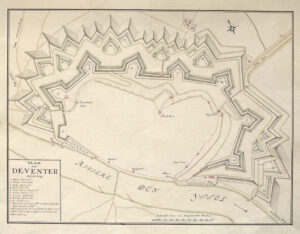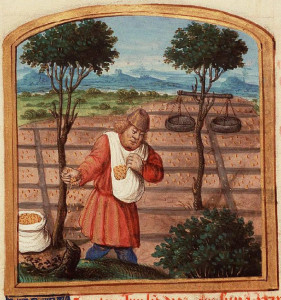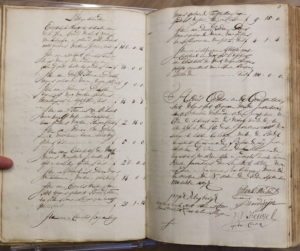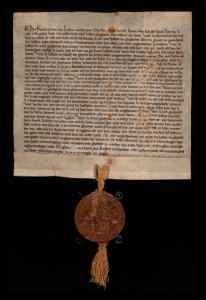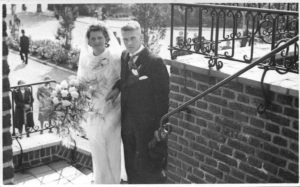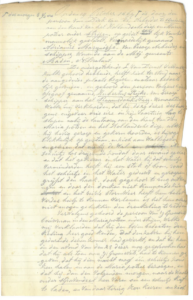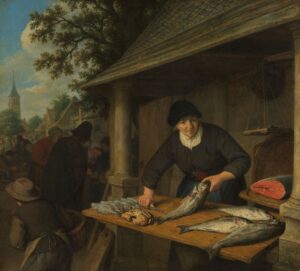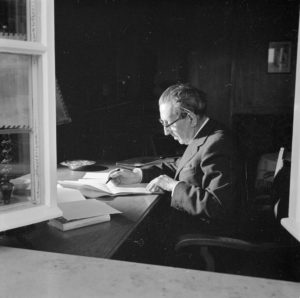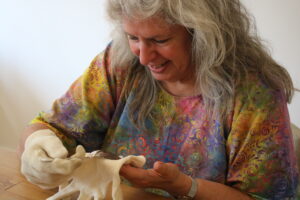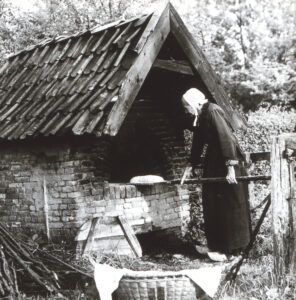Here are all the new sources, projects, and other news announced in the past month. Sources Hattinga's atlas of Gelderland, Overijssel, and Groningen from the 1740s has been digitized and can be consulted at the website of Collectie Overijssel. Cause of death notes from the east of North Brabant have been digitized and indexed. Check the index at the BHIC website. Verdicts of the Court Martial in 's-Hertogenbosch 1839-1919 have been indexed and scanned. See the BHIC website. Guid … [Read more...]
Dutch term – 7ber, 7bris
In old records, you may find the word 7ber or 7bris for the month. This means "september" [Dutch] or Septembris [Latin]. The names of the months were established when the start of the year was in March and September was the seventh month. Do not confuse 7ber for July, the seventh month of our current calendar. … [Read more...]
Source: Estate Inventories
Estate inventories tally the assets and debts of a person, family, or company. They were typically created for people of means. You are unlikely to find them for poor ancestors. Different regions have different customs, but in general, you are unlikely to find them before the 1600s, though you may find earlier examples. The most important reasons for creating an estate inventory are: ensuring the rights of minor heirs after a parent died. documenting what a spouse brought to a … [Read more...]
Dutch term – Perkament
Perkament is parchment. In the Middle Ages, parchment was the main surface for writing. It was created from animal skin, such as sheep or calf skin. Many medieval chronicles and charters were written on parchment. Gradually, parchment was replaced by paper for most types of writing, first created from textile and later created from wood. Charters kept being written on parchment, but were becoming less common. Nowadays, parchment and charters are rarely used, unless for ceremonial purposes. … [Read more...]
Quick tip – No marriage license or bond
In the Netherlands, there are no marriage licenses or marriage bonds like you may be familiar with in other countries. The only way to get married was to have banns read, typically for three consecutive weeks. That gave others the opportunity to raise objections, for example if one of the parties was promised to another, or if the couple was too closely related. In extraordinary circumstances, you may find dispensations to have the banns read all on the same day, but that is extremely rare. … [Read more...]
Dutch term – Rapport
A rapport is a report. You may come across rapporten in archival descriptions, for example of archives of authorities. Police archives may include dagrapporten (daily reports). For an example of a police report, see the article about how Adriaan Marijnissen died. … [Read more...]
Dutch Ancestors Research Plan – 17th and 18th century
In my Level-Up Challenge, I defined six levels of ancestral profiles. In this post, I will give you a basic research plan for an ancestor living in the 17th and 18th century for levels 1-4. Level 1: Names only I usually find the name of the person in records of somebody else I am researching. No specific research plan needed. Level 2: Vital statistics The civil registration was introduced in 1811 in most parts of the Netherlands (around 1795 for some parts of Limburg and Zeeland). Before … [Read more...]
Dutch term – Auteur
An auteur is an author. Before the introduction of modern copyright laws, publishers could sometimes obtain a patent, giving them exclusive rights to publish a book. You may find these patents in court records. The first real copyright law in the Netherlands dates from 1817. The current copyright law is the Auteurswet 1912. A work is protected by copyright for 70 years after the death of an author (counted from January 1st in the year after the death). Work that was published anonymously … [Read more...]
Quick tip – Friesland memorabilia
Hessel de Walle created a wonderful website with texts of graves in churches, mourning signs, stones with names, silverware, signet rings, etc in Friesland. In many cases, this includes a photo of the object. The website has the following search options: Gemeente: Municipality Plaats: Town Typen: Types. Achternaam: Last name Voornaam: First name Patronymicum: Patronymic Beroep: Occupation Foto: Photo Portretzerk: Grave portrait Latijn gebruikt: Latin … [Read more...]
Dutch term – Bakoven
A bakoven is a baking oven. People sometimes had a baking oven as a separate building, to prevent fire in the house. They are most commonly found in rural areas. You may come across the term in property records, such as notarial or court records. … [Read more...]
